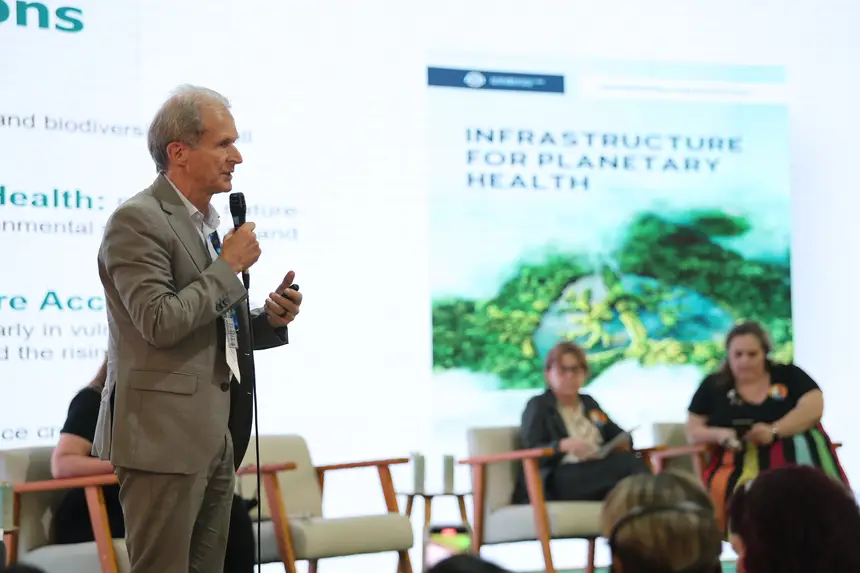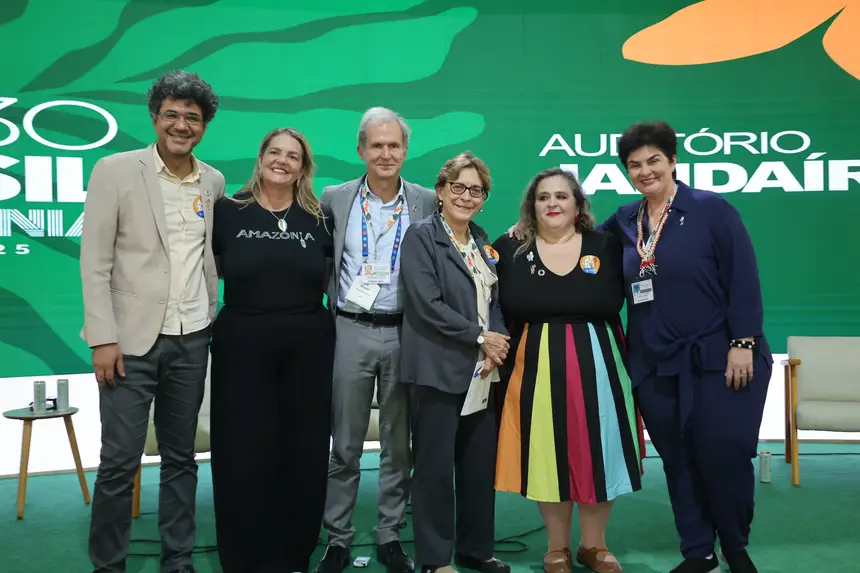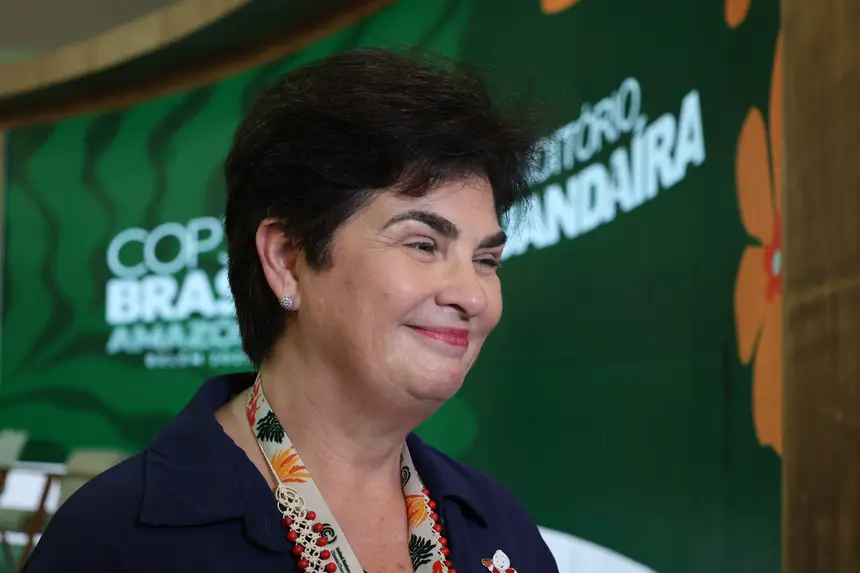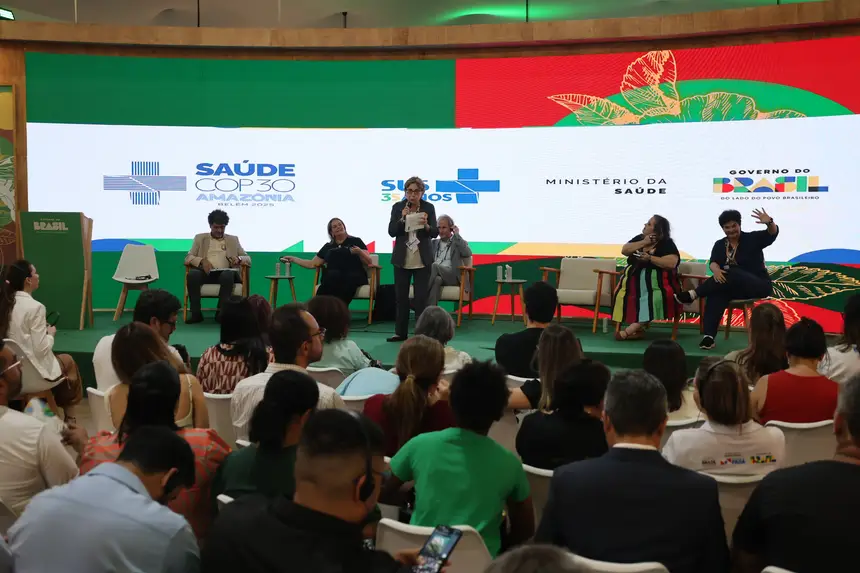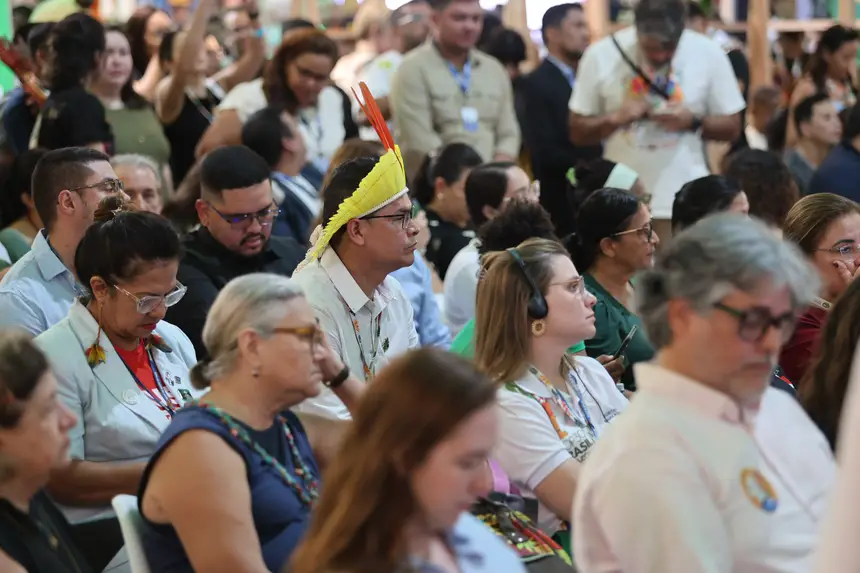Pará highlights health actions aimed at traditional peoples during AdaptaSUS panel at COP30
Sespa shares experiences with specialized care for quilombolas and reinforces commitment to equity in SUS
The Government of Pará, through the State Department of Public Health (Sespa), participated in the panel "AdaptaSUS - Adaptation of the Health Sector with Social Participation and Interfederative Dialogues," held this Thursday (13) at the Brazil Pavilion, in the Green Zone of COP30. The event, promoted by the Ministry of Health, brought together managers and specialists to discuss strategies that strengthen the response of the Unified Health System (SUS) to the impacts of climate change, with an emphasis on care for traditional peoples.
Representing Sespa, the Deputy Secretary of Health of Pará, Dr. Heloísa Guimarães, presented the State's experiences in building public policies aimed at quilombola, riverside, and indigenous communities, highlighting the importance of care models sensitive to the Amazonian reality.
Health and climate: integration between territories and knowledge
The panel was part of the official program of the 30th United Nations Conference on Climate Change (COP30), hosted in Belém, and gathered authorities such as the Secretary of Health of Amazonas, Nayara Maksoud; the Chief Economist of the Asian Infrastructure Investment Bank, Erik Berglöf; the Climate Change and Equity Coordinator, Emerson Soares; and the President of the National Health Council, Fernanda Magano.
The proposal of AdaptaSUS is to strengthen the health sector in the face of climate emergencies, through 27 goals and 93 actions organized into four strategic axes: Surveillance; Care; Health Promotion and Education; and Science, Technology, and Innovation. The plan is based on understanding territorial vulnerabilities and values the dialogue between different forms of care and knowledge.
During her participation, Dr. Heloísa Guimarães emphasized the role of equity in building a SUS adapted to the Amazonian reality. "It is an important opportunity to reaffirm the need for care models that engage with the Amazonian reality, capable of reaching riverside dwellers, traditional peoples, and quilombola communities. Initiatives like AdaptaSUS strengthen this perspective by recognizing the specificities of the region and supporting strategies that help overcome historical challenges," she stated.
Recognition of care for the quilombola population
The panel was attended by about 125 people and included audience feedback at the end of the presentation. For the professor at the Federal University of Pará (UFPA), Tany Marin, the debate marks an important advance in public policies.
"I was very happy that Dr. Heloísa brought this very important topic to the table, highlighting that Sespa is directing specialized attention to the quilombola population. We already had it for indigenous peoples, and now seeing this care directed towards quilombolas, who occupy vast territories in Pará, is very important," she declared.
The theater professor Caio Bentes also reinforced the importance of the debate. "In Pará, we have a large number of quilombos and indigenous peoples. These populations need to be heard so that policies and actions effectively reach those in need," he stated.
Commitment to equity
Sespa's participation in the panel reaffirms the Government of Pará's commitment to promoting equity in SUS and to building public policies that respect the cultural and territorial diversity of the Amazon.
With ongoing initiatives to expand coverage and quality of primary, specialized, and collective health care for traditional peoples, the Department strengthens dialogue with communities and contributes to building a resilient, inclusive health system adapted to local realities.
Text: Mariela Oliveira/ ASCOM Sespa




